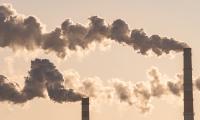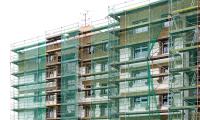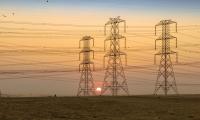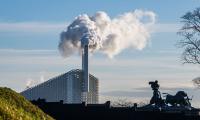Flagship report reiterates energy efficiency as a critical element of our energy policy
The ”Net Zero Emissions”-report provides a detailed mapping of the necessary advancements in the energy sector to meet the 1.5-degree target of the Paris Agreement. According to the report, energy efficiency improvements can account for up to 25% of the total global greenhouse gas reductions by 2050. This is equivalent to the emission reduction achieved by transitioning from fossil fuels to solar and wind energy.
Global energy efficiency has improved by approximately 2% in 2022, however, the IEA's net-zero scenario requires an average efficiency rate of 4% between 2022 and 2030, i.e. current efforts must be doubled.
The IEA has repeatedly called for an increased focus on energy efficiency, describing it as the “primary fuel”, yet Denmark is still underprioritizing focus on energy efficiency. There is an absence of a concrete strategy for energy efficiency, complete with targets and monitoring requirements akin to those for CO2. Denmark is solely relying on EU legislation, which is an unwise and costly approach hindering a strategic and coherent focus, which will ultimately inflate the cost of the transition.
War and energy crises demonstrate that decreased consumption is feasible
Although energy efficiency is not being deployed at the pace required by the IEA, notable advancements have been made. During the volatile and high energy prices of the past couple of years, we have shown that we are in fact able to consume energy more efficiently. Against a bleak backdrop of war and energy crisis, global energy efficiency improved by 2% in 2022, which is 4 times higher than the efficiency gains in 2020 and 2021, and nearly a double of the average from 2016 to 2021.
Energy efficiency has also played a role in capping the growth of global energy demand at 1% in 2022, a significant reduction compared to the nearly threefold level, that would have occurred without efficiency measures.
Full speed on heat pumps and electric cars in Denmark
In Denmark, there has been a notable surge in the adoption of some of the most crucial efficiency measures, particularly heat pumps and electric cars. Over the past two years, the sale of heat pumps has increased by 22.6% and 26.2% respectively, while the stock of electric cars in 2022 has increased by 69% compared to the year prior. While this might seem significant, it should be noted that heat pumps only provide 6.7% of the total heating distribution in Denmark, while oil, natural gas, etc. accounts for about 31%. Similarly, when viewed in a broader context, EV’s only made up a modest 4% of the total car fleet in 2022 in Denmark.
A lot more has to be done a lot faster both globally and in Denmark. Energy efficiency measures must be deployed across the energy, building, transport, and industrial sectors. If we can ensure a speedier transition globally towards electricity-based solutions in the building and transport sectors, such as heat pumps and electric cars, the amount of energy we could save would be equivalent to Japan and Korea’s combined total energy consumption.
Demand for electricity will multiply many times over
Projections show that global electricity demand is expected to grow significantly, therefore, society-wide electrification is required. To achieve a net-zero scenario, the IEA estimates that global electricity demand will increase by approximately 150% towards 2050. In Denmark alone, electricity demand is projected to quintuple by 2050.
Electrification is in itself an energy efficiency improvement. Additionally, increased energy efficiency can help curb demand, reducing the necessity for extensive further development of renewable energy and electricity infrastructure. Simultaneously, enhanced energy efficiency ensures the fastest and most cost-effective greenhouse gas reductions while awaiting critical infrastructure and new technologies.






